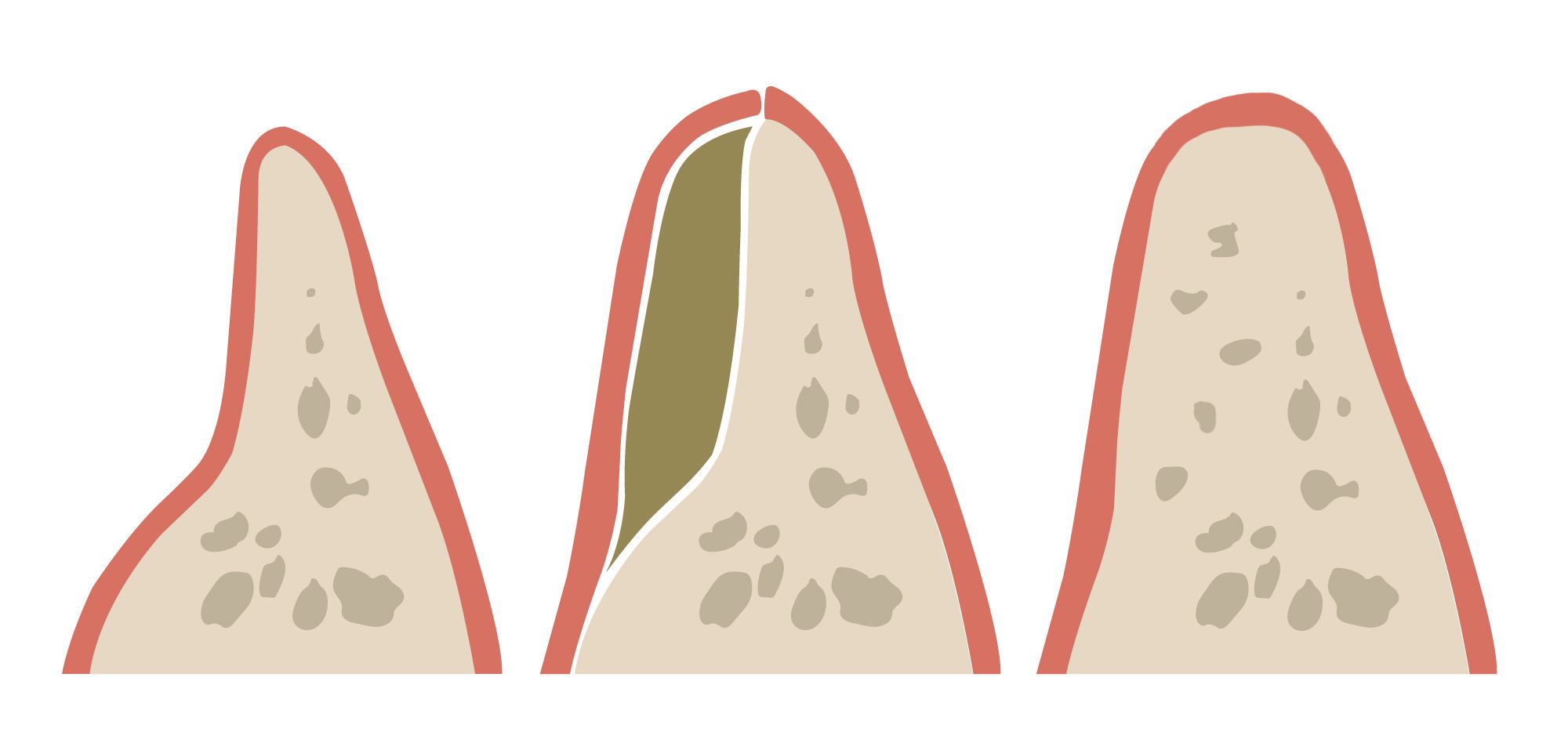ADVANCED BONE GRAFTING TECHNIQUES TO REBUILD YOUR JAW AND PREPARE FOR DENTAL IMPLANTS
Bone degeneration is a common oral health concern, particularly after tooth loss. Fortunately, Advanced Dentistry of Blakeney offers bone grafting to restore lost tissue. When you visit our Charlotte, NC, office, Dr. John M. Pinnix IV or Dr. George A. Betancourt can use a variety of techniques to rebuild your oral health. Through bone grafting, or bone augmentation, your dentist may also be able to restore your candidacy for dental implants. Our dentists are highly trained and our advanced technology can reduce your risks and help to ensure optimal oral health.

Do You Require a Bone Graft?
Your tooth roots play several important roles, holding your teeth in their sockets. However, they also help to preserve your jawbone. Each time your teeth are placed under stress, whether you are eating, speaking, or making unconscious movements, the roots will send regenerative signals to your jaw. These signals promote the growth of new tissue, helping to replace the cells lost naturally through daily wear and tear. If you have been missing teeth for some time, jawbone recession may have dramatically altered your jawbone size, health, and appearance.
A bone graft can restore your bone levels for improved oral health. Because you must have a strong jawbone to support implants, bone loss can affect your candidacy for dental implants treatment. With bone grafting, we can build a strong base for dental implants. Dr. Pinnix or Dr. Betancourt will use our digital x-rays to look for bone recession and determine your candidacy for bone grafting.
The Bone Grafting Procedure
Before a bone graft, your doctor will create a personal treatment plan. Using the x-rays of your jaw, he will determine exactly where the bone has receded and how much tissue to replace. We will begin your surgery by administering sedation, so you will experience virtually no discomfort. We offer several types of sedation, but typically recommend a deeper form for this procedure.
Once you are comfortable, Dr. Pinnix or Dr. Betancourt will create an incision over the recessed area. Then he will place new bone tissue, using small screws or anchors to hold the graft in place. We use three types of jawbone grafts.
- An autograft utilizes your own tissue from another part of your body. To perform an autograft, your dentist will usually need to remove tissue from your chin or hard palate.
- An allograft uses human tissue from a donor.
- A xenograft uses animal tissue that is comparable to human bone.
The right type of graft for you will depend on your health needs and personal preferences.
Once Drs. Pinnix or Betancourt have completed the graft, they will close up the incisions, often using dissolvable stitches. During the next four to nine months of healing, the new bone tissue will integrate with your jaw structure. When you have completely recovered, we can proceed with the next step of your treatment, such as implant placement. Conveniently, we can complete all stages of implant dentistry under one roof.
Advanced Dentistry of Blakeney can perform highly precise, effective bone grafting procedures to rebuild your jaw and oral health.
Risks and Benefits of Bone Grafting
All surgeries carry some risk of infection. In addition, there is a chance that the new tissue will fail to integrate with your jaw. However, with our precision and adherence to hygiene standards, these risks are negligible.
In contrast to the low risks of bone grafting, the procedure can have tremendous benefits for your oral health and function. By rebuilding your jaw, Drs. Pinnix and Betancourt can prevent further tissue degeneration and tooth loss. They can also restore your candidacy for implants, the most durable, stable, and realistic option to replace missing teeth. Finally, bone grafting can even improve your appearance and self-confidence by restoring the natural shape of your jaw and face.
Improve Your Oral Health
Advanced Dentistry of Blakeney can perform highly precise, effective bone grafting procedures to rebuild your jaw and oral health. To learn more about this procedure and to find out if you are a candidate for treatment, contact us online or call us at (704) 543-1102 today.


